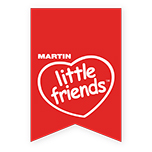Pet safety tips for outdoor summer adventures

Canadian summers offer so many opportunities to get outside and explore, with our pets at our side. For pet parents, some of our most treasured times with our our furry BFFs happen in the summer — at a cottage, lakeside, on a picnic in the park, or during a long hike followed by a satisfying swim.
For some expert advice on keeping our pets safe all season long, we turned to veterinarian Dr. Garrett Schuilenberg, who gave us a heads up on what to watch out for this summer and how a little bit of prevention can go a long way toward making this the BEST. SUMMER. EVER.
It’s a wild, wild life
It isn’t only humans and their pets who love to get outside in the summer, wildlife is out and about too.
Whether you’re at the lake or on a hike through the woods, you’re likely to encounter more animals in the summer than during other seasons. Depending on what part of the country you live in, there are particular animals to look out for.
Backcountry adventurers should be on the lookout for larger animals and educate themselves thoroughly about what to do if they encounter a bear, moose, wolf or coyote. A leash can be the most powerful tool to keep both you and your pet safe in these situations.
For the more casual outdoor explorer, keep in mind that small animals can still create BIG headaches for you and your pet.
Just ask anyone whose cat or dog has ever had a run-in with a skunk. While a multitude of home remedies exist (we’ve all heard about tomato juice), Dr. Schuilenberg suggests keeping a commercial product on hand.
“The best thing, honestly, is to get one of the skunk-off shampoos,” he says. Home remedies like hydrogen peroxide and baking soda can hurt your pet if not mixed and applied properly. Shampoos and other odour removers sold at pet stores are both more effective and safer.
Sometimes, however, a skunk encounter may require a trip to the vet. “If your dog gets any skunk spray in the eyes or mouth, go to the vet,” says Dr. Schuilenberg. “Skunk spray has a molecule in it that can actually cause dogs to become anemic. So it's a good idea to double-check with your vet.”
Porcupines are less common than skunks in most areas but more harmful to pets. If your pet interacts with one, Dr. Schuilenberg’s advice is clear and firm: head to the vet immediately. “Do not try to pull those quills out yourself,” he says.
“Porcupine quills are barbed. So when they go in, they hook themselves in there. They basically always require the dog to be sedated if not anaesthetized to be able to take them out, and a lot of cases require a surgical procedure to remove them. Consider that an emergency situation. Infection is definitely common with these sorts of things.”
Another common summer concern is the proliferation of poison ivy. Luckily for dogs, they don’t actually react to the plant … but that doesn’t mean it can’t become a problem for pet parents. What dogs can do, says Dr. Schuilenberg, “is carry the molecule that makes people itch on their fur. Then you can get poison ivy from your dog.”

An ounce of prevention…
For both cats and dogs, quality harnesses and leashes go a long way to protect pets. Training, too, can help to avoid unsafe situations. Recall training — so pets come readily when called — should be at the top of a pet parent’s to-do list for summer (and year-round) safety.
A spring visit with your vet is also going to help to make summer with your pet a safer one. Tick, flea, and heartworm medications are vital for keeping your pet safe and healthy — even for pets who spend their summers in the city.
These parasites are best avoided with the use of vet-prescribed medicines available in one or three-month doses. The medications are applied topically or taken orally, but Dr. Schuilenberg says that he prefers the oral formulations because they have a lower chance of impacting the environment.
Topical formulas are absorbed into the bloodstream but some amounts remain on the surface of your pet’s skin and can affect insects that aren’t the target of the medication.
“I think we're starting to better understand how pesticides can affect insect populations,” Dr. Schuilenberg says. “So my choice is always an oral medication because I do worry about how the topicals impact ecology.”










































